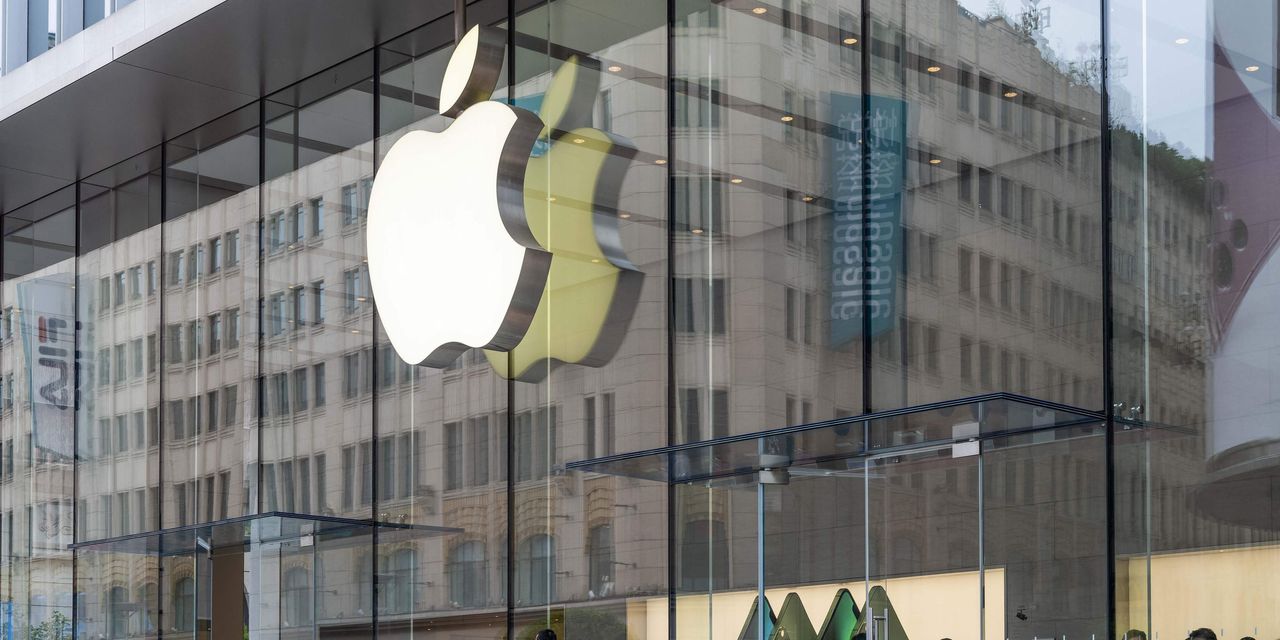Apple Inc.’s worst-case scenario in China doesn’t look that bad, according to a Morgan Stanley analyst — and that’s unlikely to occur in the first place.
Shares of Apple
AAPL,
were recovering slightly Friday after suffering two sessions of declines related to fears about the company’s China business. A Wall Street Journal report said that China was banning the use of iPhones for work purposes by government officials, while a Bloomberg News story discussed the potential for those bans to expand to some other state-affiliated workers.
Plus, Chinese technology company Huawei recently came out with a new phone that looks more competitive in the market. Apple is thought to have won market share at Huawei’s expense in recent years as Huawei was weighed down by U.S. sanctions that limited its ability to obtain technology for its phones.
Read: Apple’s newest China challenge could be a blast from the past
The stock was up 0.9% in morning action after shedding 6.4% across the prior two trading days in a selloff that Morgan Stanley’s Erik Woodring deemed “overdone.”
In Woodring’s view, Wall Street is worried that the latest issues in China signal the potential for the country to become more nationalistic, which could jeopardize the $30 billion-plus in operating profit that Apple derives from the region.
“We believe that’s an overextrapolation by the market, as Huawei’s 5G smartphone shipments will be greatly limited by supply constraints (and potential further technology restrictions), and iPhone curbs by the Chinese government aren’t necessarily new, reportedly having begun as far back as 2020.”
Meanwhile, he noted that Apple is responsible for the direct and indirect employment of millions of people in China, making the company “critical to the Chinese economy.”
See also: Here’s why Wall Street may be overreacting about Apple’s China’s challenges
“[W]hile the potential for a broad decoupling between Apple and China in this multipolar world clearly exists, we don’t believe recent headlines are necessarily foreshadowing this ‘worst case’ scenario,” Woodring wrote. “As a result, we’d conclude Apple’s recent stock move is indeed overdone as it implies Apple loses ~70% of its iPhone shipments in China, a highly draconian and unlikely scenario.”
That unlikely worst-case scenario would mean revenue downside of 4% and earnings-per-share downside of 3%, and it assumes Apple gives back all the market share it picked up from Huawei in the past three years.
Don’t miss: The iPhone 15 is coming. Here’s everything to expect from Apple’s big event.
Woodring wrote that he is upbeat about the strength of Apple’s ecosystem in the country, noting that many consumers are likely “entrenched” as they own multiple Apple devices.
“Government curbs may force some switching to domestic vendors, but we assume most Chinese government officials (or at [state-owned enterprises]) already own a smartphone from domestic [manufacturers],” he said.
Read the full article here












